Уильям Моэм - Мистер Всезнайка. Рассказы
- Название:Мистер Всезнайка. Рассказы
- Автор:
- Жанр:
- Издательство:неизвестно
- Год:неизвестен
- ISBN:нет данных
- Рейтинг:
- Избранное:Добавить в избранное
-
Отзывы:
-
Ваша оценка:
Уильям Моэм - Мистер Всезнайка. Рассказы краткое содержание
Метод чтения Ильи Франка
Мистер Всезнайка. Рассказы - читать онлайн бесплатно полную версию (весь текст целиком)
Интервал:
Закладка:
Jean Charvin was born and bred in the great seaport of Le Havre (Жан Шарвен родился и вырос в большом портовом городе Гавре; to breed — размножаться; воспитывать, обучать ). His father had a good post in the Customs (его отец занимал хорошую должность в таможенном управлении). Having finished his education, he did his military service (получив: «закончив» образование, он отслужил в армии; service — услужение; военнаяслужба ), and then looked about for a job (и после этого стал подыскивать себе работу). Like a great many other young Frenchmen he was prepared (как и большинство молодых французов, он был готов) to sacrifice the hazardous chance of wealth for a respectable security (пожертвовать призрачной возможностью разбогатеть ради почтенной уверенности в будущем; hazardous — рискованный, опасный; wealth — богатство; security — безопасность; уверенностьвбудущем, чувствобезопасности ). His natural gift for figures made it easy for him (его врожденная способность к /работе с/ цифрами легко позволила ему; gift — подарок, дар; дарование, талант ) to get a place in the accountant’s department of a large exporting house (получить место/должность в бухгалтерии большой фирмы, занимавшейся экспортом; place — место; место, должность, служба; house — дом, здание; фирма, торговыйдом ). His future was assured (его будущее было обеспечено). He could look forward to earning a sufficient income (он мог рассчитывать на то, что будет зарабатывать = получать достаточный доход; to look forward to — предвкушать/что-либо/,ожидать/чего-либо/судовольствием ) to live in the modest comfort of the class to which he belonged (чтобы жить со средним комфортом, присущим тому классу, к которому он принадлежал; modest — скромный; умеренный; comfort — утешение; комфорт, благополучие ).
sacrifice ['sxkrIfaIs], hazardous ['hxzqdqs], security [sI'kju(q)rItI], assured [q'SVqd], sufficient [sq'fIS(q)nt]
Jean Charvin was born and bred in the great seaport of Le Havre. His father had a good post in the Customs. Having finished his education, he did his military service, and then looked about for a job. Like a great many other young Frenchmen he was prepared to sacrifice the hazardous chance of wealth for a respectable security. His natural gift for figures made it easy for him to get a place in the accountant’s department of a large exporting house. His future was assured. He could look forward to earning a sufficient income to live in the modest comfort of the class to which he belonged.
He was industrious and well-behaved (он был трудолюбивым и благонравным; well-behaved — благонравный, хорошего поведения; соблюдающий приличия;tobehave— вести себя, поступать, держаться ). Like most young Frenchmen of his generation he was athletic (как и большинство молодых французов его поколения, он был спортивным; athletic— спортивный; атлетический, сильный ). He swam and played tennis in summer, and in winter he bicycled (летом он плавал и играл в теннис, а зимой катался на велосипеде; to swim ). On two evenings a week to keep himself fit he spent a couple of hours in a gymnasium (чтобы быть в форме, два вечера в неделю он проводил пару часов в гимнастическом зале). Through his childhood, his adolescence and his young manhood, he lived in the constant companionship of a boy (все детство, отрочество и юность он дружил с одним пареньком; young — молодой, юный; manhood — возмужалость, зрелость; companionship — товарищескиеотношения ) called, shall we say for the purposes of this narrative, Henri Renar (которого звали, скажем, в целях этого рассказа, Анри Ренар) whose father was also an official in the Customs (чей отец также был чиновником таможенного управления).
industrious [In'dAstrIqs], athletic [xT'letIk], bicycle ['baIsIk(q)l], gymnasium [dZIm'neIzIqm], adolescence ["xdq'les(q)ns]
He was industrious and well-behaved. Like most young Frenchmen of his generation he was athletic. He swam and played tennis in summer, and in winter he bicycled. On two evenings a week to keep himself fit he spent a couple of hours in a gymnasium. Through his childhood, his adolescence and his young manhood, he lived in the constant companionship of a boy called, shall we say for the purposes of this narrative, Henri Renar whose father was also an official in the Customs.
Jean and Riri went to school together (Жан и Рири вместе ходили в школу), played together (вместе играли), worked for their examinations together (вместе готовились к экзаменам; to work — работать, трудиться; заниматься; examination — осмотр, обследование; экзамен ), spent their holidays together (вместе проводили каникулы), for the two families were intimate (потому что две семьи были очень дружны; intimate — глубокий, сокровенный; близкий, дружеский ), had their first affairs with girls together (вместе завязывали свои первые романы с девушками; affair — дело; роман, связь, любовнаяистория ), partnered one another in the local tennis tournaments (были партнерами на местных теннисных турнирах), and did their military service together (и вместе служили в армии). They never quarreled (они никогда не ссорились; toquarrel— спорить; ссориться, браниться ). They were never so happy as in one another’s society (больше всего они были счастливы, общаясь друг с другом: «они никогда не были настолько счастливы, как в обществе друг друга»; society— общество; общение, контакт ). They were inseparable (они были неразлучны; toseparate— отделять, разделять; разъединять; отсоединять ).
intimate ['IntImIt], tournament ['tuqnqmqnt, 'tO:-], quarrel ['kwOrql], inseparable [In'sep(q)rqb(q)l]
Jean and Riri went to school together, played together, worked for their examinations together, spent their holidays together, for the two families were intimate, had their first affairs with girls together, partnered one another in the local tennis tournaments, and did their military service together. They never quarrelled. They were never so happy as in one another’s society. They were inseparable.
When the time came for them to start working they decided (когда /им/ пришло время начать работать, они решили) that they would go into the same firm (что они будут работать в одной и той же фирме); but that was not so easy (но это оказалось не так-то просто; easy — легкий, нетрудный ); Jean tried to get Riri a job in the exporting house that had engaged him (Жан попытался найти Рири работу в экспортной фирме, которая наняла его), but could not manage it (но ему это не удалось; to manage — руководить; суметь/сделать/,справиться ), and it was not till a year later that Riri got something to do (и только год спустя Рири нашел какую-то работу; to do — делать; заниматься/чем-либо/;работать ). But by then trade was as bad at Le Havre as everywhere else (но к тому времени торговля в Гавре, как и везде, шла плохо; trade — занятие, ремесло; торговля ), and in a few months he found himself once more without employment (и через несколько месяцев он снова оказался без работы; to find oneself in a state — оказаться, очутитьсявкаком-либоположении ).
job [dZOb], exporting [Ik'spO: tIN], employment [Im'plOImqnt]
When the time came for them to start working they decided that they would go into the same firm; but that was not so easy; Jean tried to get Riri a job in the exporting house that had engaged him, but could not manage it, and it was not till a year later that Riri got something to do. But by then trade was as bad at Le Havre as everywhere else, and in a few months he found himself once more without employment.
Riri was a light-hearted youth, and he enjoyed his leisure (Рири был беспечным молодым человеком и получал удовольствие от ничегонеделания; leisure — досуг; свободноевремя ). He danced, bathed and played tennis (он танцевал, купался и играл в теннис). It was thus that he made the acquaintance of a girl (именно таким образом от познакомился с одной девушкой) who had recently come to live at Le Havre (которая недавно переехала: «приехала» жить в Гавр). Her father had been a captain in the colonial army (ее отец был капитаном в колониальной армии) and on his death her mother had returned to Le Havre (и после его смерти ее мать вернулась в Гавр), which was her native place (который был ее родным городом: «городом, в котором она родилась»). Marie-Louise was then eighteen (Марии-Луизе тогда было восемнадцать лет). She had spent almost all her life in Tonkin (она провела почти всю свою жизнь в Тонкине). This gave her an exotic attraction for the young men who had never been out of France in their lives (это делало ее необычайно привлекательной для молодых людей, которые никогда в своей жизни не бывали за /пределами/ Франции; exotic — экзотический; необычный, эксцентричный; attraction — притяжение, тяготение; привлекательность ), and first Riri, then Jean, fell in love with her (и сперва Рири, а затем и Жан влюбились в нее).
Читать дальшеИнтервал:
Закладка:

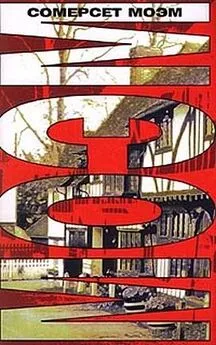
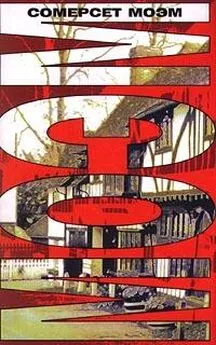
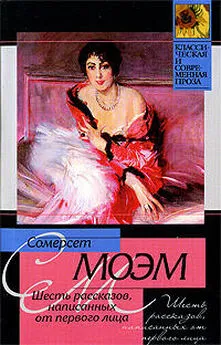
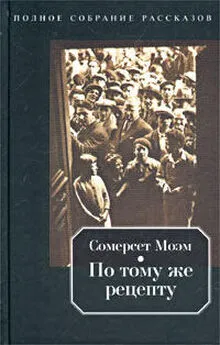
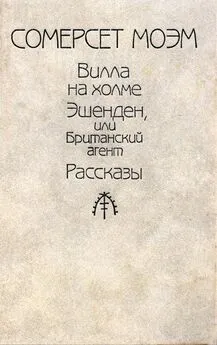
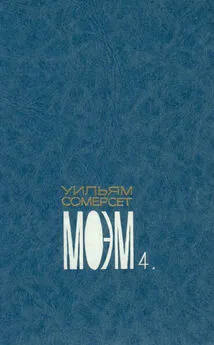
![Уильям Моэм - Сумка с книгами [Рассказы]](/books/1081361/uilyam-moem-sumka-s-knigami-rasskazy.webp)